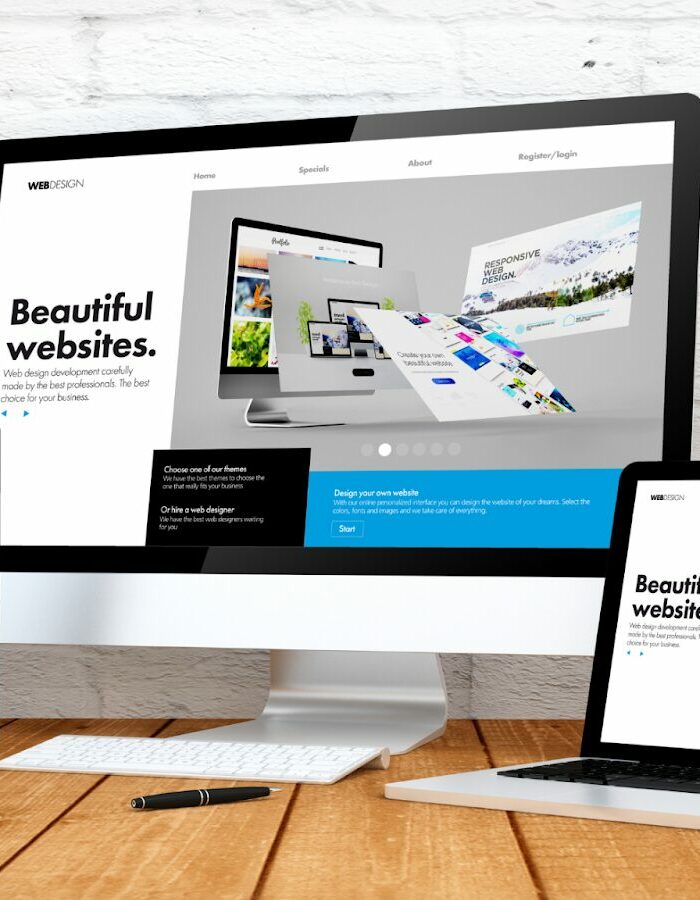In the bustling world of online commerce, the digital storefront serves as the gateway to success for businesses large and small. Just as a well-designed physical storefront can attract customers and drive sales, an ecommerce website plays a pivotal role in capturing the attention of online shoppers and converting them into loyal patrons. In Los Angeles, a city renowned for its innovation and creativity, the art of ecommerce web design in Los Angeles is elevated to new heights, with businesses constantly striving to outshine the competition and leave a lasting impression on visitors.
As consumers increasingly turn to the internet to fulfill their shopping needs, the importance of a well-crafted ecommerce website cannot be overstated. It serves as more than just a virtual marketplace; it’s a digital representation of a brand’s identity, values, and offerings. From the layout and aesthetics to the functionality and user experience, every aspect of ecommerce web design plays a crucial role in shaping the perception of a business and influencing purchasing decisions. In this competitive landscape, businesses must embrace the latest trends and technologies to stand out from the crowd and capture the hearts of their target audience.
Let’s delve deep into the world of ecommerce web design, exploring the key elements that contribute to its success. From the seamless integration of aesthetics and functionality to the importance of brand identity and SEO optimization, we’ll uncover the strategies and best practices that drive results in today’s digital marketplace. Join us as we unravel the mysteries of ecommerce web design and discover how businesses in Los Angeles are leveraging innovation and creativity to unlock success in the online sphere.
Importance of A Good Ecommerce Website
In today’s digital world, having a good ecommerce website is super important for businesses. It’s like having a really nice storefront, but online. Your website is where people come to check out your products and decide if they want to buy from you. So, it needs to look good, work well, and make it easy for customers to find what they’re looking for.
Here’s why having a top-notch ecommerce website matters:
- First Impressions Count: Your website is often the first interaction customers have with your brand. A well-designed website creates a positive first impression and makes people more likely to trust your business.
- 24/7 Accessibility: Unlike a physical store that has opening and closing hours, your ecommerce website is open 24/7. This means customers can shop whenever it’s convenient for them, leading to more sales and revenue.
- Reach A Wider Audience: With an ecommerce website, you’re not limited to customers in your local area. You can sell to people all over the world, expanding your reach and potential customer base.
- Convenience For Customers: Online shopping is all about convenience. A good ecommerce website makes it easy for customers to browse products, compare prices, and make purchases without ever leaving their home.
- Build Trust And Credibility: A professional-looking website builds trust and credibility with customers. It shows that you’re serious about your business and that you value their experience.
Overall, investing in a good ecommerce website is essential for any business looking to succeed in today’s digital marketplace. It’s not just about selling products—it’s about creating a seamless and enjoyable shopping experience for your customers.
Key Elements of An E-commerce Website Design
When it comes to running a successful online store, having an effective e-commerce website design is crucial. Your website is like your digital storefront, and it needs to be welcoming, easy to navigate, and optimized for conversions. Let’s take a closer look at some key elements of e-commerce website design that can help you attract customers, increase sales, and grow your business.
- User-Friendly Navigation
One of the most important aspects of e-commerce website design is user-friendly navigation. Your website should be organized in a way that makes it easy for visitors to find what they’re looking for. This means having clear categories and subcategories, a search bar, and logical navigation menus. The goal is to minimize the number of clicks it takes for customers to find and purchase products.
- High-Quality Product Images
In the world of online shopping, images are everything. High-quality product images can make a huge difference in whether or not a customer decides to make a purchase. Your e-commerce website should feature clear, high-resolution images that accurately represent your products from multiple angles. Consider including zoom functionality so customers can get a closer look at the details.
- Compelling Product Descriptions
In addition to great images, compelling product descriptions are essential for converting visitors into customers. Your product descriptions should be informative, engaging, and persuasive. They should highlight the key features and benefits of each product and address any potential concerns or objections that customers may have. Remember to use language that speaks directly to your target audience and conveys the value of your products.
- Simple Checkout Process
A complicated checkout process can lead to cart abandonment and lost sales. To streamline the checkout process, aim to keep it as straightforward as possible. Avoid requiring customers to create an account before making a purchase, and offer guest checkout options. Clearly outline the steps involved in the checkout process, and provide multiple payment options to accommodate different preferences.
- Mobile Responsiveness
With more and more people shopping on their smartphones and tablets, your e-commerce website must be mobile responsive. This means that it automatically adjusts to fit the screen size of any device, providing a seamless shopping experience for mobile users. A mobile-responsive design not only improves the user experience but also helps boost your search engine rankings, as Google prioritizes mobile-friendly websites in its search results.
- Trust Signals
Building trust with your customers is paramount in e-commerce. Incorporating trust signals into your website design can help reassure visitors that it’s safe to shop with you. Trust signals may include customer reviews and testimonials, security badges and SSL certificates, a clear privacy policy, and prominent contact information. These elements help instill confidence in your brand and encourage visitors to make a purchase.
Persius Creative: Your Ecommerce Design Partner In Los Angeles
As the premier choice for ecommerce web design in Los Angeles, Persius Creative combines expertise with creativity to deliver exceptional results. With a proven track record of successful projects and a deep understanding of the local market, Persius Creative is committed to helping businesses thrive in the digital realm. Whether you’re launching a new online store or seeking to revamp your existing ecommerce website, Persius Creative offers tailored solutions that elevate your brand and drive success.




